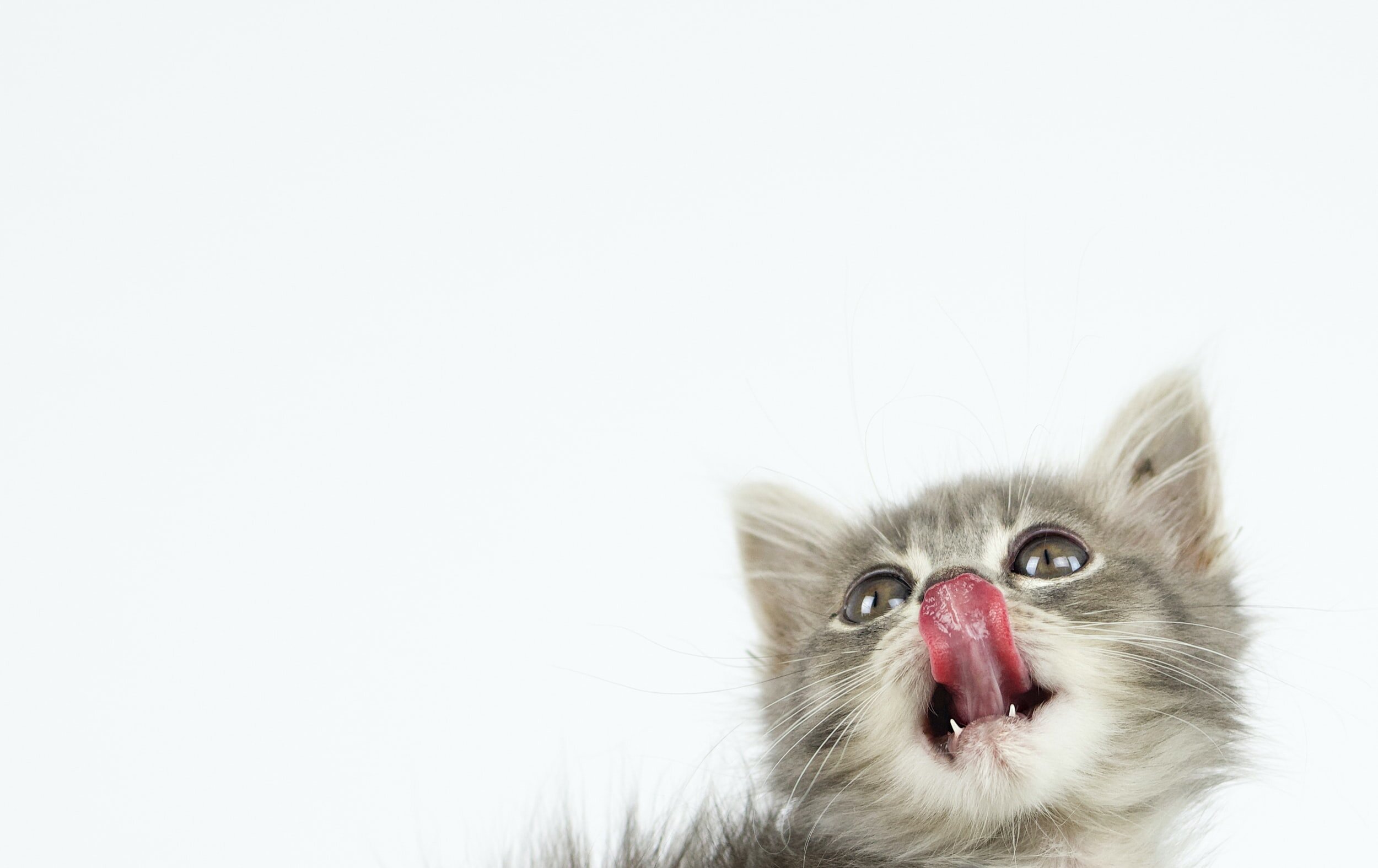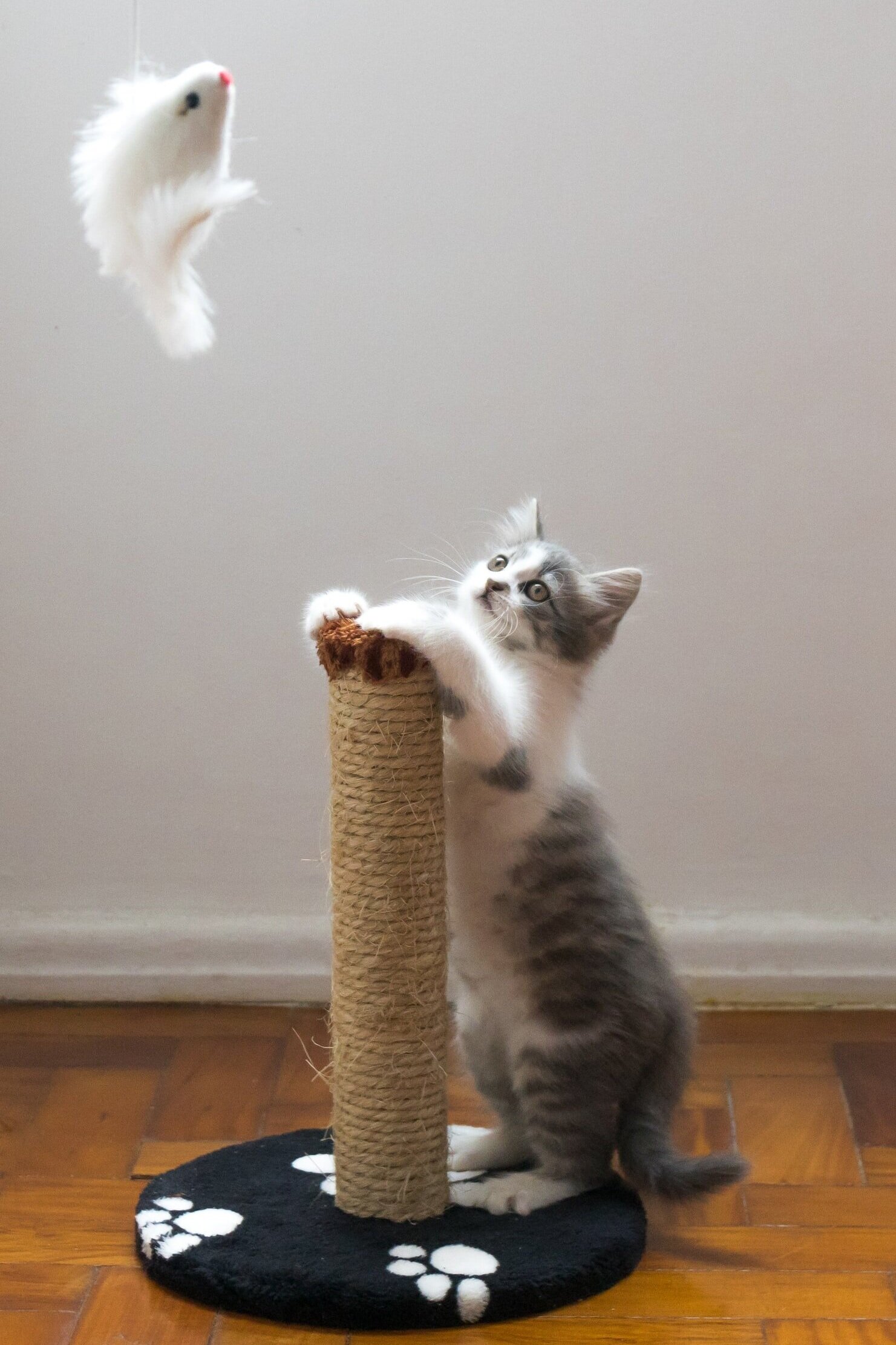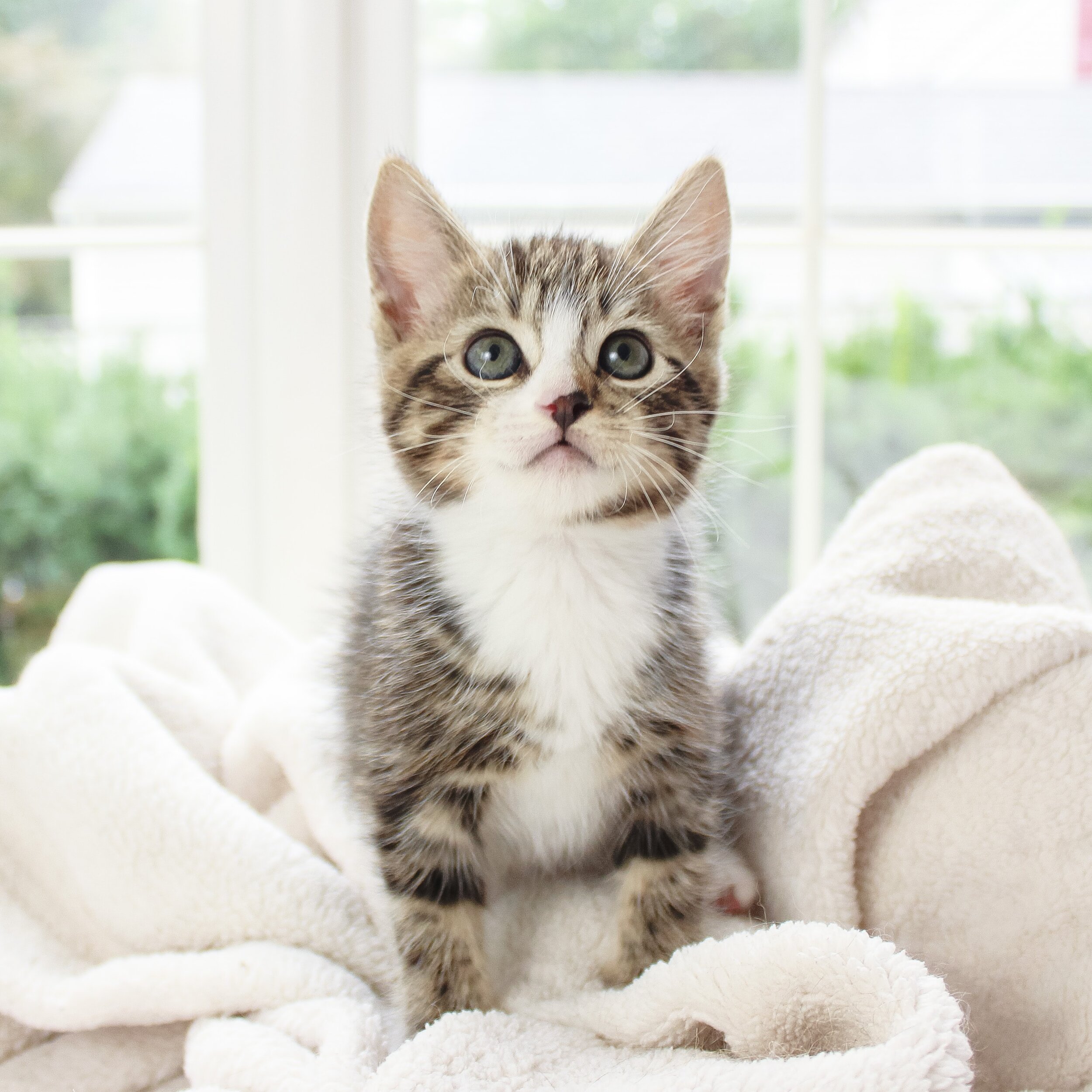Bringing home a new kitten can be a very exciting time and there is lots to do to prepare for their arrival. To make it easy, we have created a resource of new kitten guides and checklists to help you prepare including:
How to prepare your home before your kitten arrives
Items to bring when picking up your kitten
Checklist of the kitten essentials you will need
New kitten important contacts list
We have also created a printable checklist so you can tick each item off the list as you go, allowing you to prepare for your new kitten with ease and focus more on that excitement!
1. Preparing your home for a new kitten
Before bringing your new kitten home, you will need to spend some time getting your home and existing pets ready for their arrival.
Purchase essentials – purchase all the essentials such as food, bowls, bedding, litter tray & litter, collar & ID tag, travel crate and play toys. This article includes a full checklist of what you will need.
Get new pet ready – set up a place for your new kitten to sleep and establish where they will eat, drink, play and go to the toilet. Cats like vertical spaces so you will need to think of a few high places that they can retreat to away from any existing pets or people. Having their own personal items and special toys can prevent existing pets becoming jealous or anxious.
Kitten proof your home – make sure anything that could be harmful to your kitten is removed or secured away. This can include poisonous plants (eg. Lilies), toxic cleaning products, exposed electrical wires etc. Kittens can be fascinated by toilet bowls, so keep the seat down to prevent drowning or poisoning from harsh chemicals.
Think of existing pets - if you need to move existing pets’ items, do this ahead of time so they have time to adjust before the new kitten arrives. This helps reduce stress and avoid problems with existing pets being too afraid to use their litter tray, eat or drink when their new furry family member arrives.
Healthy happy pets - make sure all existing pets are up to date with vaccinations and parasite control. Very young pets may not be fully vaccinated yet so it is vital that they only come in contact with other pets that are friendly, healthy and up to date with their vaccinations.
Establish house rules - before your kitten comes home, determine the rules that they will need to abide by to help them settle in and to ensure there is no confusion for everyone. For example:
No & go zones - will they be allowed on the bed, couches or other furniture? Are there parts of the house that are off limits?
Time for everyone - each family member needs time to get to know their new furry addition so make sure everyone gets a chance.
Time out - if your kitten looks overwhelmed, make sure they have a safe and comfortable area to go to for a break. Cats love vertical spaces so think about a few high places that they can retreat to away from people and other pets.
Exploring & meeting - give your kitten time to explore their new home and environment. Have a plan in place for introducing them to any existing pets.
Love & attention – keep it positive and offer lots of praise and positive encouragement for good behaviour.
2. What to bring when collecting your kitten
Collar with bell & ID tag
Travel crate
Blanket
Comfort toy
Camera and friend or family member
Rags and old towels
3. Kitten essentials checklist
Feeding
Food and water bowls – your kitten will need fresh water at all times and a separate bowl for their meals, so pick out two bowls. Bowls with a rubber base are handy as they help prevent the bowl from slipping whilst they are eating or drinking.
Kitten food – as your kitten grows, a complete and balanced diet is important. There are a wide range of kitten food products available that are specifically formulated for your kitten’s needs. Our vets can provide you with the best advice about what diet is most suitable for your kitten.
Treats – great for training to reward all their good behaviour. Choose treats that are specially formulated for kittens. Keep in mind kitten treats need to be offered in moderation and should make up less than 10% of your kitten’s calorie intake for the day.
Bedding
Bed – Although your kitten may want to share your bed, they will need their own comfortable, dry place to rest in your home. A cat bed, chair, box or basket are great options to choose from.
Blanket – offer some extra comfort by adding a soft, washable blanket or towel to their bedding.
Comfort toy - help your kitten settle into their new home and feel safe and secure by offering them a plush comfort toy. This can be rubbed on their litter mates and mum so you can bring their scent back home with you.
Grooming
Brushes and combs – kittens are natural self-groomers, but regular brushing at home is also important to removing loose hair and prevent the formation of knots and hairballs. It’s good to start your grooming routine early to get your kitten used to your gentle touch. Choose a brush or range of brushes that are suited to your kitten’s coat and needs.
Nail clippers – you will need a set of nail clippers to trim your kitten’s nails. There are multiple styles to choose from including scissor clippers, guillotine clippers and grinding tools. If you are unsure or would rather leave cutting your kitten’s nails to the professionals, you can book an appointment with our groomer or speak to one of our vets.
Shampoo, conditioner, cleaning wipes – whilst kittens regularly groom themselves sometimes they can get dirty. Keep your kitten’s coat clean and smelling fresh with a gentle shampoo and conditioner that is suitable for your kitten’s sensitive skin. Cat cleaning wipes can be used as an alternative water free solution to keeping your cat clean.
Toothbrush & toothpaste – your kitten’s dental health is important. Get your kitten into a regular dental routine from the start by using dental products such as a toothbrush and toothpaste designed specifically for pets. Aim to brush your kitten’s teeth daily, but even once a week will make a difference.
Exploring & car travel
Collar with bell & ID tag – kittens are masters at hiding so look for a collar with a bell so you can always find them. You will also need to attach an identification tag with your kitten’s name and your contact details in case they ever become lost.
Travel crate – you will need a travel crate to collect your kitten, take them to the vets and any other car travel.
Crate mat and cover – make your kitten’s crate inviting and cosy by adding a soft bed mat inside. A cover can also be handy whilst travelling to help them feel secure and safe.
Cat harness or lead (optional) – a harness and lead can be useful for travelling and training but they are not essential.
Playing
Play toys – Kittens are very playful and energetic and love to use up their energy interacting with their owner or chasing a cat toy. Provide your kitten with a variety of toys to stimulate their curiosity and playfulness. Leave some toys available for your cat to play with independently and keep some aside for your own playtime together to keep it interesting and retain their novelty.
Scratching pole - Cats need to scratch. They do this instinctively to keep their nails in good condition. Provide a scratching pole or mat to help prevent your kitten from scratching your furniture. Make sure the scratching pole is stable enough that it won’t wobble during use and you may need a few around the house depending on your kitten’s needs.
Cat enclosures (optional) - are becoming increasingly popular for outdoor cats. Placed in a weatherproof area, they allow your cat to experience the wonders of the great outdoors, while keeping them safe and sound. Indoor cats generally live longer, healthier lives than outdoor cats.
Toilet training
Litter tray, liners & scoop – you will need to provide your kitten with a litter tray to go to the toilet. Having two litter trays in the house per cat is ideal offering them choice when doing their business. Accessories such as tray liners and scoops make it easy to keep the litter tray clean.
Cat litter – there are a variety of cat litters to choose from so pick one that suits both you and your kitten.
Cleaning supplies – good to have on hand for accidents, especially during the early stages of toilet training.
Parasite prevention
Flea, tick and worming treatment – common parasites in kittens include fleas, ticks and worms and each of them bring serious health risks with them. Good news is that there are a number of parasite treatments available. You want to make sure you are giving your kitten a preventative that is appropriate for their age, breed and lifestyle. Our vets can help you determine the most suitable products and program to protect your pet from parasites. A great time to discuss parasite control is during your kitten’s first health check.
4. New kitten important contacts list
Vet/24 hour emergency vet - One of the first things you should do when you get a new kitten is to find a local vet and book a health check. Our vets will not only check your kitten’s general health but will also discuss a preventative healthcare routine including vaccinations, parasite control, micro chipping and de-sexing options. Research your closest 24 hour emergency vet and save their details in your phone. Woofpurnay Veterinary Hospital offer a 24 hour on call pet emergency service. Simply call 03 8784 4444 to reach or professional and friendly vet on call.
Council – Before you bring your kitten home, get in touch with your local council to ask about their regulations regarding areas such as night curfews, compulsory containment within your property, registration, micro chipping and de-sexing. Each council has different laws so get in touch with the council in your local area for full details.
Pet sitter/boarding – speak to your family, friends or neighbours about getting a little help when you are at work or need a break from your kitten. If those options aren’t available there are boarding kennels that offer day or extended boarding services as well as mobile pet sitting services that you can easily research on-line. Woofpurnay Veterinary Hospital features purpose built boarding facilities for cats or dogs. Bookings are essential. Click here to find out more.
Pet insurance - We strongly recommend that you insure your kitten. Pet insurance is becoming more popular in Australia as it offers peace of mind and covers some or all of the treatment costs if your cat was involved in an accident or suffers a sudden illness. There are several companies that offer pet insurance and we can help you find the one that best suits the needs of you and your pet.
Welcoming a new kitten into your family can be a very exciting and rewarding time. We are here to help you navigate the challenges of raising a new kitten so call us on 03 8784 4444 with any questions. We can’t wait to meet your new furry family member.
















